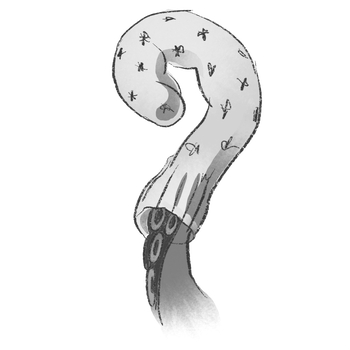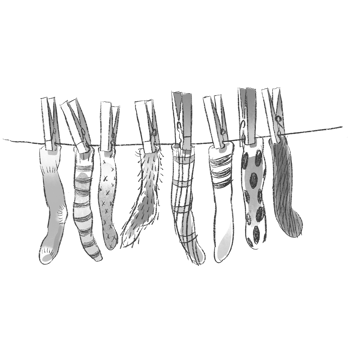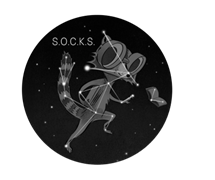Medium

VT EPSCoR SOCKS 2026 Summer Research Internships
Vermont EPSCoR is offering 2026 summer research internship opportunities for our cutting-edge NSF-funded project, Harnessing the Data Revolution for Vermont: The Science of Online Corpora, Knowledge, and Stories (SOCKS). This five-year, interdisciplinary initiative aims to better understand and harness the power of stories which are essential tools for how people comprehend, explain, predict, and navigate the world. SOCKS advances the Digital Humanities by creating innovative methods to quantify individual stories and their ecosystem using data collection, natural language processing, and large language models.
The VT ESPCoR SOCKS Summer Research Internship program allows students to engage in research associated with the NSF EPSCoR award. The interns are paired with research teams working within the transdisciplinary SOCKS program. At the end of the internship, the teams come together for a symposium to share their findings through oral presentations and written reports. Students can expect a full-time, high-impact, hands-on research experience for 10 weeks.
To apply, please visit our application portal:
Questions? Send us an email!
Primary Faculty Mentors:
Dr. Juniper Lovato, Assistant Professor, Computer Science, University of Vermont, [website]
Dr. Kemi Fuentes-George, Associate Professor of Political Science, Middlebury College
Dr. Alice Patania, Assistant Professor in the Department of Mathematics & Statistics, University of Vermont
Dr. Pablo Bose, Professor of Geography and Geosciences, University of Vermont
Dr. Bob Gramling, Professor in the Department of Family Medicine, University of Vermont
Dr. Brennan Dell, Assistant Professor of Linguistics, University of Vermont
Dr. Richard Watts, Director of the Center for Research on Vermont
The range of research areas in which students may participate is quite extensive. SOCKS interns delve into research projects - an opportunity not often available during the academic year. Projects are markedly different from most course-based work in that they are open-ended and part of a much larger research program.
Click here to learn more about our 2026 research projects.
Stay tuned for which faculty will be mentoring in summer 2026.
About SOCKS:
SOCKS is a transdisciplinary research project funded by the National Science Foundation (NSF) that aims to advance initiatives grounded in principled methods through the quantitative measurement of sentiment and stories across a broad portfolio of corpora. We hope to provide new insights into the power and use of stories and narratives across a broad array of social, economic, and health domains through integrated data and teams.

The internships will start on May 25th, 2026 and end on July 31st, 2026. Towards the end of the 10-week internship period, interns are required to attend and present their research at the Vermont EPSCoR Student Research Symposium, as well as submit a 10-page research paper by the last day of the internship. Interns will also have the opportunity to attend the International Conference on Computational Social Science, a great professional development opportunity.

The internship takes place at the University of Vermont campus in Burlington, Vermont USA.
Internship Stipend:
Interns receive a $5,000 stipend over the 10-week program. Additionally, on-campus housing is provided at no cost and interns receive a daily food allowance. Interns also receive a travel grant up to the amount of $1500; our team members will assist in planning travel to and from Vermont.
Applicants must be US citizens or permanent residents enrolled in a college or university with a strong interest in a career in a STEM or social science field. Students graduating prior to the start of the internship are not eligible to apply.
Application Procedure:
The application requires a letter of recommendation from a faculty member, an unofficial transcript, and two short essays. Applications are due January 4th, 2026 at 5:00 pm EST.
Selection and placement of students will take place in January and February of 2026. Interview invitations will be sent out in early February. Interviews will take place mid-February. Placement decisions will be sent out by the end of February; applicants who were not placed will be notified at this time.
To apply, please visit our application portal.

The VT ESPCoR SOCKS Summer Research Internship program allows students to engage in research associated with the NSF EPSCoR award. The interns are paired with research teams working within the transdisciplinary SOCKS program. At the end of the internship, the teams come together for a symposium to share their findings through oral presentations and written reports. Students can expect a full-time, high-impact, hands-on research experience for 10 weeks.
To apply, please visit our application portal:
Questions? Send us an email!
Primary Faculty Mentors:
Dr. Juniper Lovato, Assistant Professor, Computer Science, University of Vermont, [website]
Dr. Kemi Fuentes-George, Associate Professor of Political Science, Middlebury College
Dr. Alice Patania, Assistant Professor in the Department of Mathematics & Statistics, University of Vermont
Dr. Pablo Bose, Professor of Geography and Geosciences, University of Vermont
Dr. Bob Gramling, Professor in the Department of Family Medicine, University of Vermont
Dr. Brennan Dell, Assistant Professor of Linguistics, University of Vermont
Dr. Richard Watts, Director of the Center for Research on Vermont
The range of research areas in which students may participate is quite extensive. SOCKS interns delve into research projects - an opportunity not often available during the academic year. Projects are markedly different from most course-based work in that they are open-ended and part of a much larger research program.
Click here to learn more about our 2026 research projects.
Stay tuned for which faculty will be mentoring in summer 2026.
About SOCKS:
SOCKS is a transdisciplinary research project funded by the National Science Foundation (NSF) that aims to advance initiatives grounded in principled methods through the quantitative measurement of sentiment and stories across a broad portfolio of corpora. We hope to provide new insights into the power and use of stories and narratives across a broad array of social, economic, and health domains through integrated data and teams.

The internships will start on May 25th, 2026 and end on July 31st, 2026. Towards the end of the 10-week internship period, interns are required to attend and present their research at the Vermont EPSCoR Student Research Symposium, as well as submit a 10-page research paper by the last day of the internship. Interns will also have the opportunity to attend the International Conference on Computational Social Science, a great professional development opportunity.

The internship takes place at the University of Vermont campus in Burlington, Vermont USA.
Internship Stipend:
Interns receive a $5,000 stipend over the 10-week program. Additionally, on-campus housing is provided at no cost and interns receive a daily food allowance. Interns also receive a travel grant up to the amount of $1500; our team members will assist in planning travel to and from Vermont.

Applicants must be US citizens or permanent residents enrolled in a college or university with a strong interest in a career in a STEM or social science field. Students graduating prior to the start of the internship are not eligible to apply.
Application Procedure:
The application requires a letter of recommendation from a faculty member, an unofficial transcript, and two short essays. Applications are due January 4th, 2026 at 5:00 pm EST.
Selection and placement of students will take place in January and February of 2026. Interview invitations will be sent out in early February. Interviews will take place mid-February. Placement decisions will be sent out by the end of February; applicants who were not placed will be notified at this time.
Learn More
- Internship expectations and Timeline
- Meet the 2025 SOCKS Undergraduate Interns
- Meet the 2024 SOCKS Undergraduate Interns - Project Videos Included
- Article: Research Internship Highlights the Future of Digital Humanities
- SOCKS News: 2025 SOCKS Undergraduate Intern Symposium
- SOCKS Newsfeed
- Useful Python and NLP Tutorials to Check Out:
To apply, please visit our application portal.
